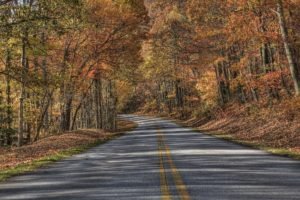Sara Maitland’s A Book of Silence. James Ragan’s Too Long a Solitude. Jane Brox’s Silence: A Social History. Thomas Merton’s Thoughts in Solitude…
Is it just a coincidence, or did I subconsciously start reading books dealing with silence and solitude in the weeks before I planned to spend a few days alone in a friend’s rural cabin? And will the relative silence make my somewhat maladaptiveness to busy environs even worse? For I freely admit that living for thirty years in an area that borders on the rural, and spending so much of my time in the garden, has made me less inured to excess, human-made noise.
Sara Maitland writes, after spending some years outside of London ensconced in a quiet town, that “going to cities, to large parties, or to any place where there are a significant number of loud, overlapping but different sounds remains stressful and tiring at best.” This reaction is not mere “introversion”–indeed, for most of her life, Maitland appears to have been an exceedingly social and sociable person, quick with a retort, response, or witty reply and often in the company of boisterous, talkative people. She definitely cares deeply about relationships and communication, both between close friends or family members and between reader and writer/author. Like her, though more of a shy person in my younger years than she was, I value communicative aspects of conversation and togetherness while finding it harder than ever to live in the midst of noise pollution.
Of course, writing is a communicative act, a form of creating relationships between reader and writer, and therefore may not always or necessarily thrive amid silence, or in solitude, though that Romantic notion remains intact in most people’s minds. When I consider my own work, I recognize the lyric “you” (implying an Other), the narrative action (requiring the behavior of living beings dwelling in the world with Others), and various interactions among the lines that set up relationships that are not only abstract or metaphorical but concrete and physical, even when the poem skates along the reflective mode (how can there be a consideration of a Myself without an Other?).
So although part of my brief upcoming “retreat” is, in fact, for solitude’s sake—a few days to be alone with my own writing process and make some creative decisions—the solitude’s less urgent than the silence. I’m not an ascetic nor a spiritual seeker, just a writer who wants a few days unplugged (and not entirely so) to mull through ideas and revise some poems. This process seems easier to me when I do not have to deal with anyone’s society, even the companionship of those I love. It’s been quite awhile since I last made this kind of silent time for myself, and I’m curious as to what will result.
Maybe just some naps and daydreaming, which might not be an entirely fruitless harvest.

Angi Engnlish. CC license.

Share this post with your friends.

